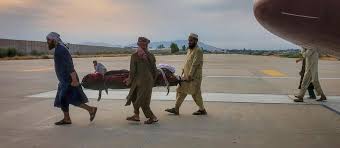Understanding the Current Situation in Kabul

Introduction
Kabul, the capital of Afghanistan, has been a focal point in international affairs, particularly following the Taliban’s takeover in August 2021. The city, rich in history and culture, is now faced with significant challenges, impacting millions of residents and drawing global attention regarding humanitarian issues and security concerns.
Recent Developments
In the past few months, Kabul has seen both a resurgence of Taliban governance and a critical humanitarian crisis. According to the United Nations, over 24 million people in Afghanistan, nearly 60% of the population, are in urgent need of assistance. The onset of winter exacerbates these conditions, with many living in precarious circumstances lacking basic necessities such as food, shelter, and medical care.
The Taliban’s rule has also led to widespread restrictions on women’s rights, including prohibitions on education and employment, making international organisations wary of engaging fully in development efforts. Reports indicate that the loss of economic opportunities for women significantly hampers the nation’s potential for recovery and prosperity.
Security Concerns
Amid these humanitarian challenges, security remains a pressing issue. Although the Taliban has declared that Afghanistan is now more secure, the threat of militant groups, including ISIS-Khorasan, poses a serious risk. As per the latest assessments by security analysts, attacks targeting both Taliban officials and civilians have increased, raising alarms about the stability of Kabul and other areas in Afghanistan.
International Response
The international community remains divided on how to approach Kabul’s situation. While some countries have expressed willingness to provide humanitarian aid, they often attach conditions related to human rights and governance. The United Nations has called for the global community to engage in dialogue with the Taliban, emphasizing the need for humanitarian access while addressing rights abuses.
Conclusion
The situation in Kabul serves as a stark reminder of the complexities that arise from political upheaval and governance crises. As winter sets in and humanitarian needs escalate, it is imperative for the international community to find ways to assist the Afghan people while holding local authorities accountable. The coming months will be crucial in shaping the future of Kabul, determining both the immediate humanitarian support and the longer-term prospects for peace and stability in Afghanistan.









